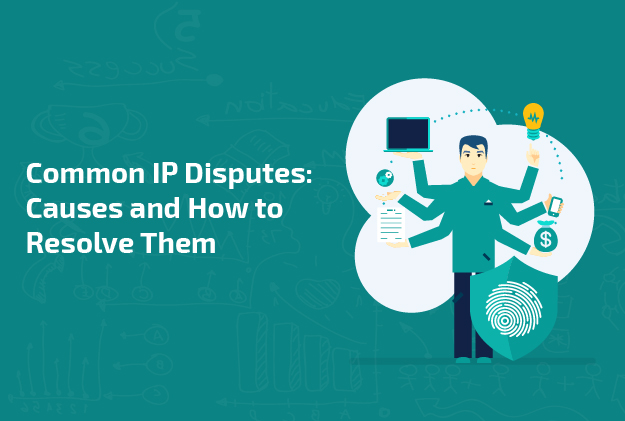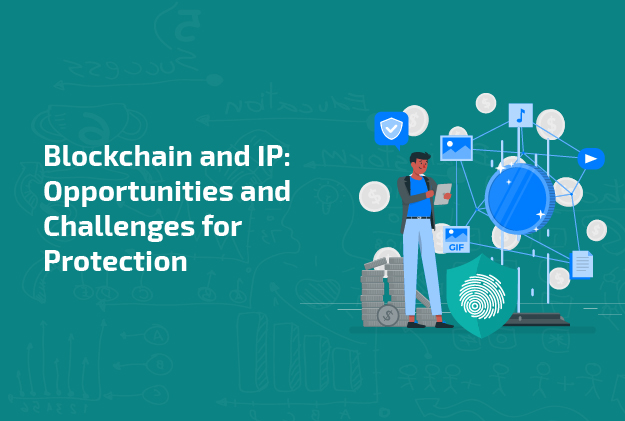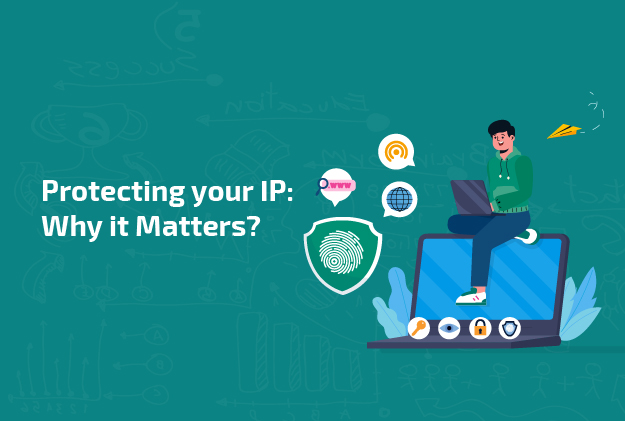Intellectual Property (IP) can be your creative ideas, artistic works, business ideas, or anything that has been fermented by your intellect and mind. Intellectual property has turned out to be one of the prime assets for both the individuals and the organization and has weighed down the material aspect in many cases. Hence, it becomes imperative to protect intellectual property as it is not just your creative legacy but can be a foundational layer for your economic sustainability.
The tech-led globe has made the transmission of any creative as well as artistic works easier and has ensured the transition of many ideas into successful ventures. The digital paradigm has made the creation and distribution of IPRs i.e., Intellectual Property Rights more efficient. IPRs have been bifurcated into broadly two categories one being the copyright which is used for the protection of the creations in the field of literature, music, and artistic works, while the other being industrial jargon like patents, trademarks, geographical indications, and trade secrets for inventions, confidential information, and business start-ups.
However, the traditional IP management systems used for intellectual property rights have several shortcomings including human errors, legal complexities, real-time data unavailability, and others. This is why many individuals as well as firms are opting for blockchain technology for assurance of better security.
Blockchain and Tokenization
Blockchain technology is an advanced, decentralized, and often public digital ledger mechanism that stores information. As the name suggests, the information in this platform is stored in blocks that are linked together in a chain. The data stored in these blocks cannot be deleted or modified and provides the users with security, transparency, and efficiency.
On the other hand, tokenization is the process of converting tangible assets, intangible assets, and ownership rights into tokens. Tokens are the units that determine ownerships, they do not contain the actual data but rather have similar data. Tokenization acts as a replacement of valuable assets and they have no value other than storing the data. These tokens are stored in the distributed ledger technology or blockchain technology.
Moreover, there are both blockchain tokenization as well as non-blockchain tokenization where the former has been branched into multiple types like fungible tokenization, non-fungible tokenization, governance tokenization, and utility tokenization. Blockchain secures the process of tokenization by securing the history of the process and keeping hold of the transactions to dodge potential future disputes.
Further, this digital transformation has created an immutable and decentralized ledger for keeping track of the ownership and transaction records. Additionally, the smart contracts in the blockchain have been automated to streamline the process reduce the intermediaries, and work towards timely payments. Many times, firms and companies use smart contracts to decrease their dependency on assistance from a third party.
Decentralization and IP Management
Decentralization is one of the pivotal features of blockchain technology which enables the transfer of owning, controlling, or managing the network from the centralized structures to the distributed structures. The entire process of decentralization strives towards reducing the trust amongst the participants. The step makes sure to maintain trustless surroundings where if a member’s data has been altered, corrupted, or changed, the other members will reject it.
Decentralization further increases data reconciliation and accuracy; it further bars the isolation of the data. This ensures the entities and members have access to real-time data along with the shared view of the same. It also lets each member have a copy of their distributed ledger that has extremely high fault tolerance.
The integration of the blockchain with intellectual property will reduce the number of clients and customers visiting the offices for the registration of their patents. The entire process of protecting their intellectual assets will succumb to the step of automated smart contracts. This will reduce the delays and timeframes of months and years that can be uploaded within minutes.
Besides, blockchain has made the laborious paperwork management of intellectual property into tireless verification of IP ownership. An association with the blockchain can avoid legal issues in case of any feuds or allegations. The culmination can revolutionize the process of IP management as it has a trustworthy reliance on the secured network and is time-stamped with transparent tracking.
Role of MyIPR
MyIPR strives to safeguard and streamline the data or content. The platform provides the users with a smooth certification process and this certificate acts as evidence of possession. MyIPR is a user-friendly interface and ensures that the certificate can comply with legal standards.
Additionally, blockchain technology offers a robust solution by securely collecting and timestamping evidence of IP creation, making MyIPR a secure platform for creators and businesses to commence their creative ventures in a safe environment. At the same time, it keeps a record of the time of possession for the creators.
Again, the interface is built with an advanced algorithm mechanism that can detect similar patterns in the data, this adds another layer of protection to your data. MyIPR is garbed with timestamping technology which makes it more outstanding in the market.
Conclusion
In the swiftly moving landscape over the internet, it is vital to take steps towards the protection of intellectual property. Now, the world is moving towards more protected and preserved ways to protect data with certain transparency to dodge the likely future problems. This is the reason; day-by-day people are inclined towards blockchain technology. Blockchain technology protects intellectual property by providing a decentralized, transparent, and tamper-proof interface to record and verify the ownership of the data uploaded. By notable features like smart contacts and immutable ledger, blockchain provides real-time data reconciliation and easy and efficient transactions.
For more information and queries, please visit MyIPR, a user-friendly application that will streamline your creation and will make sure to comply with the security of the content and creation.












